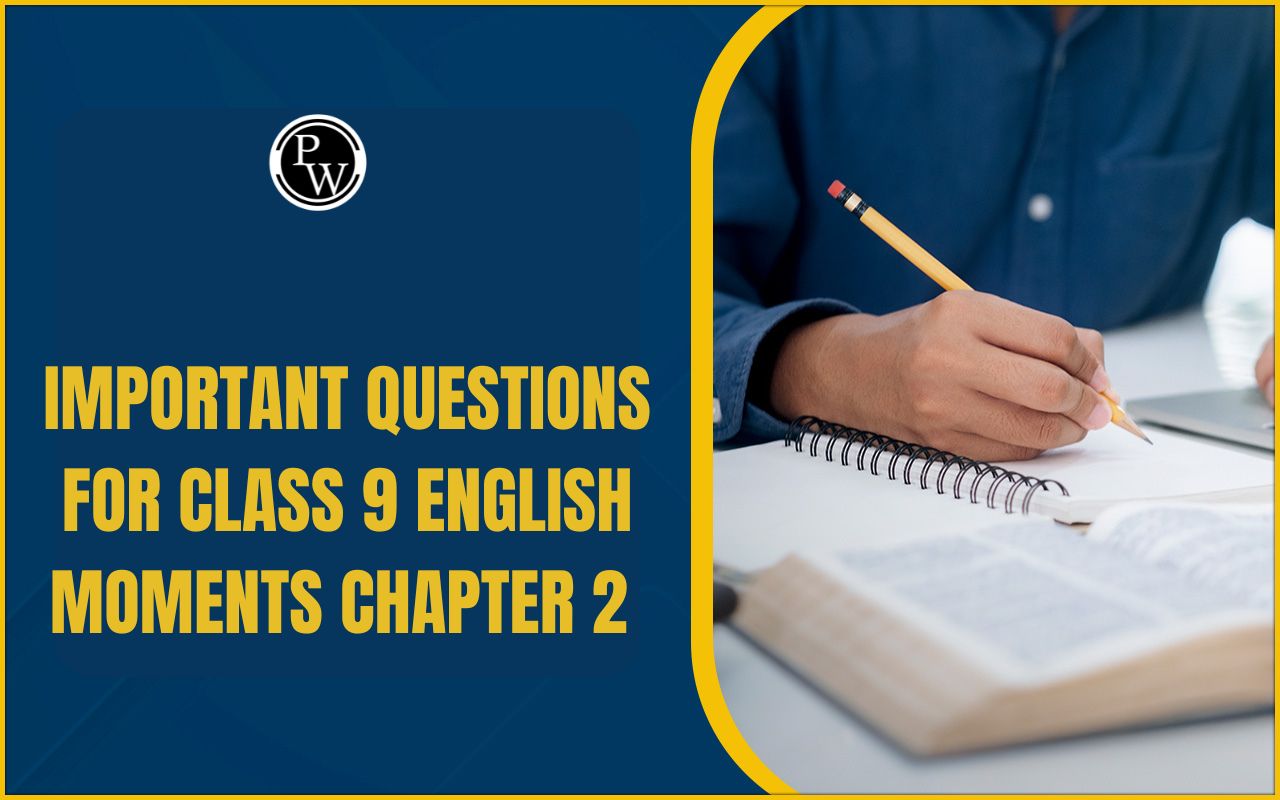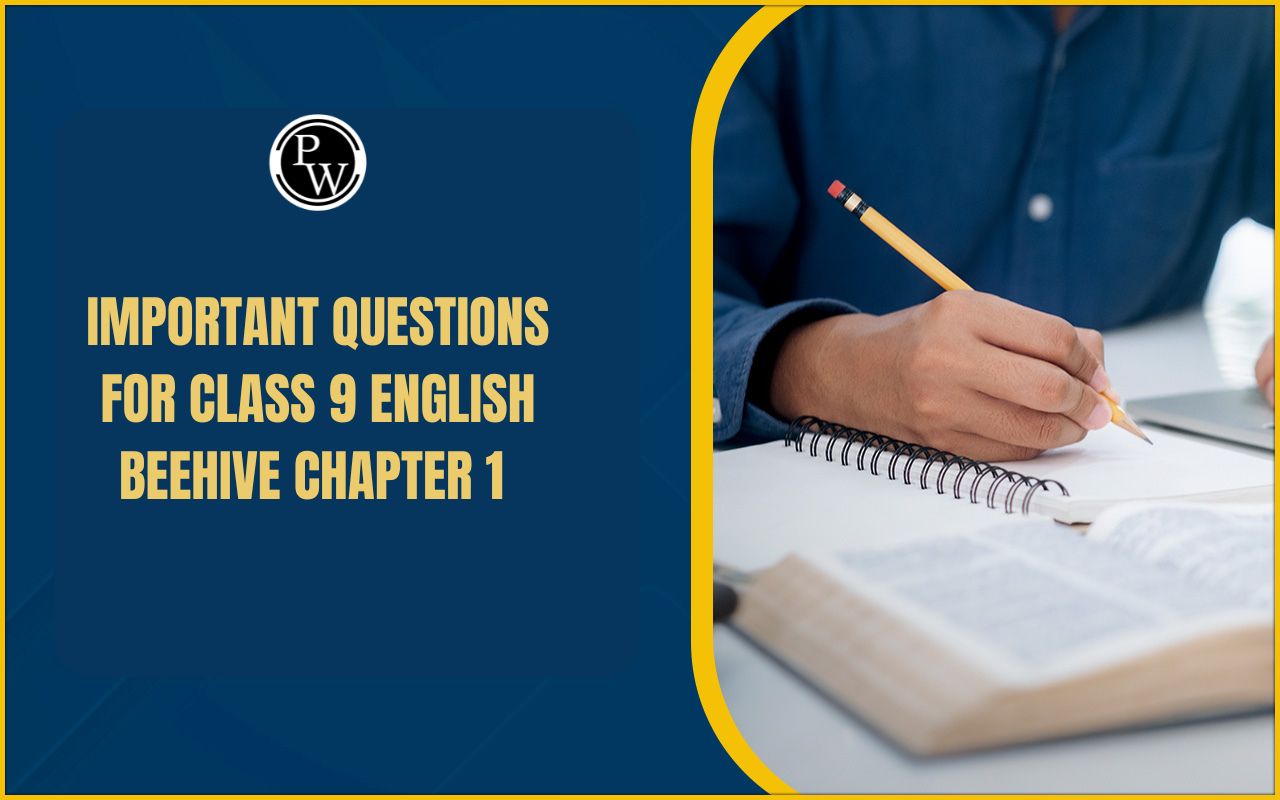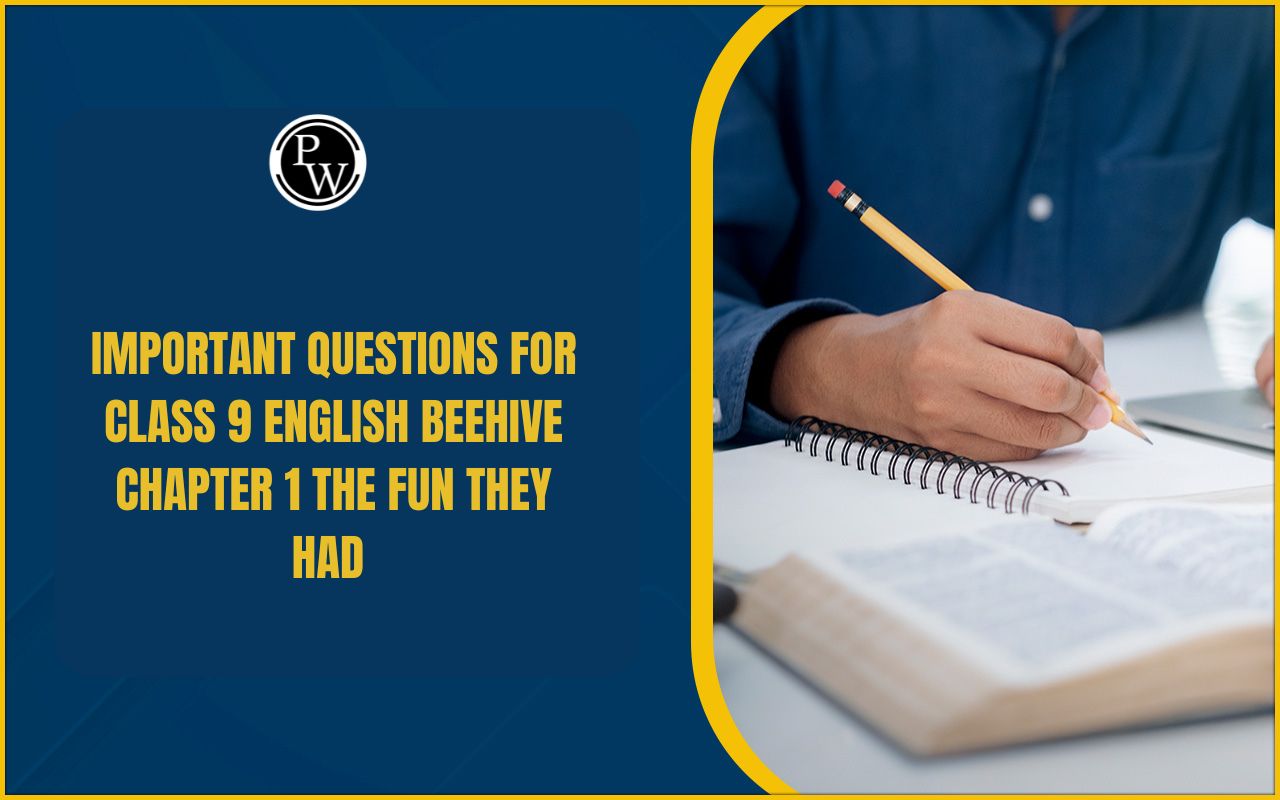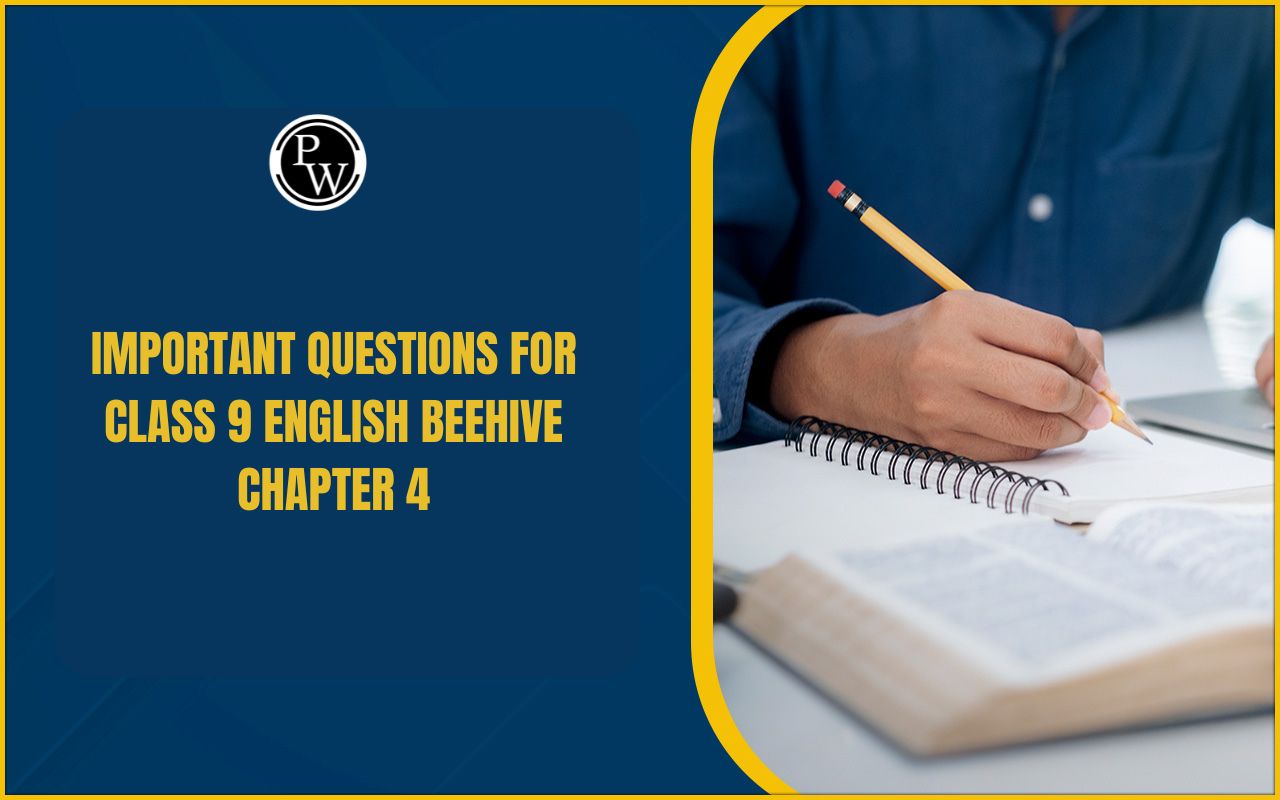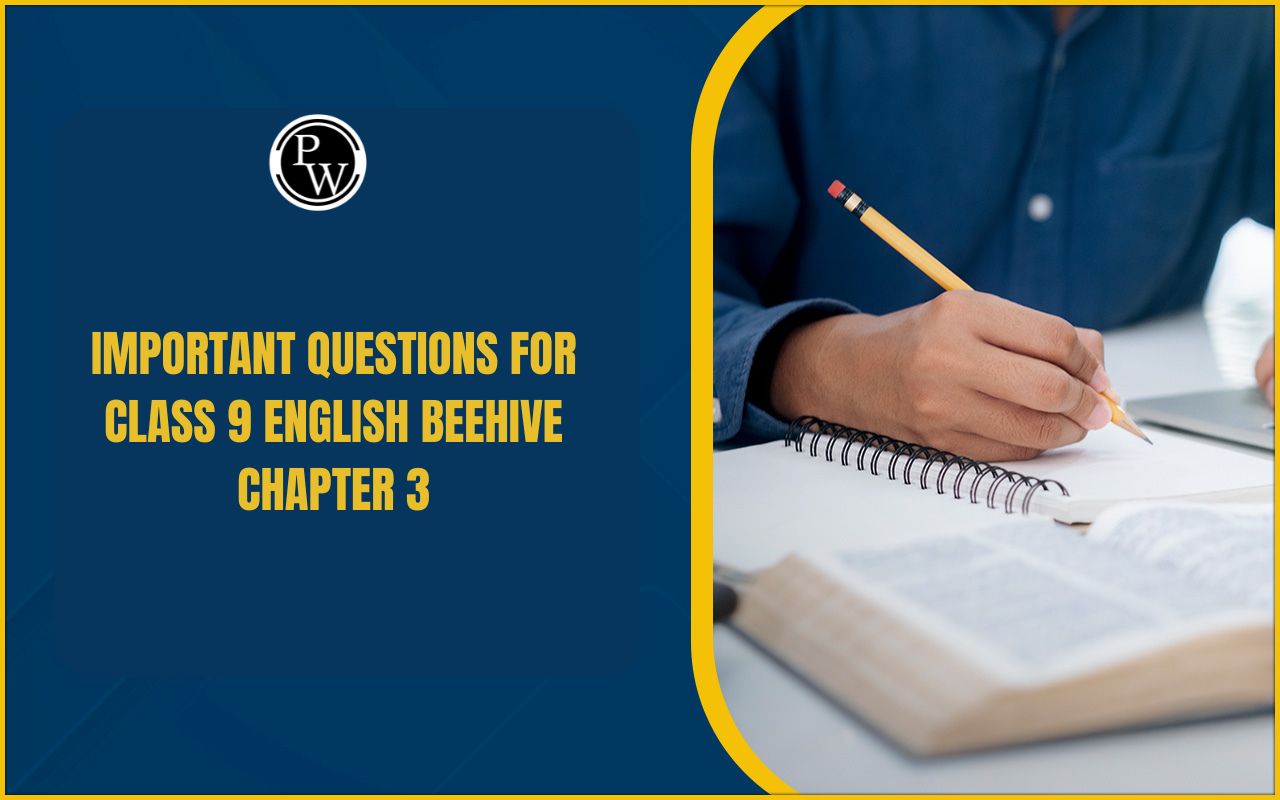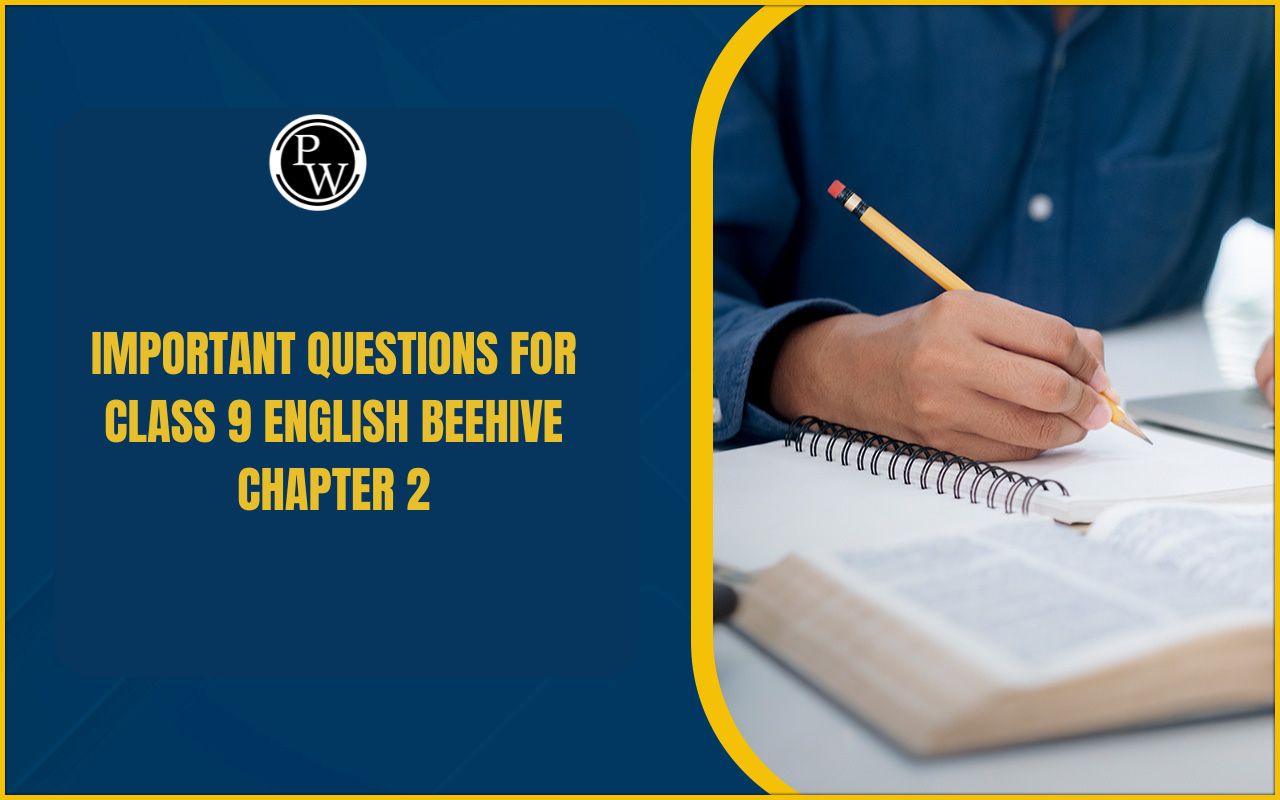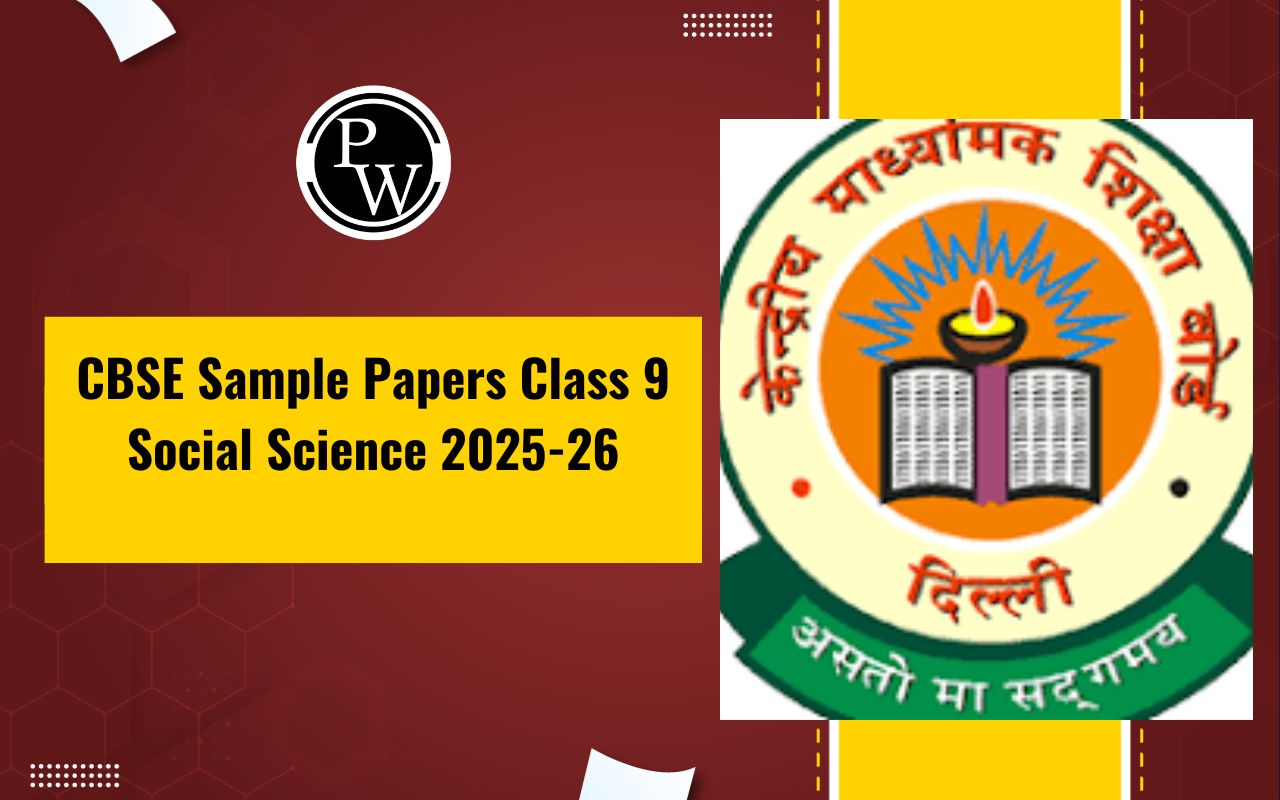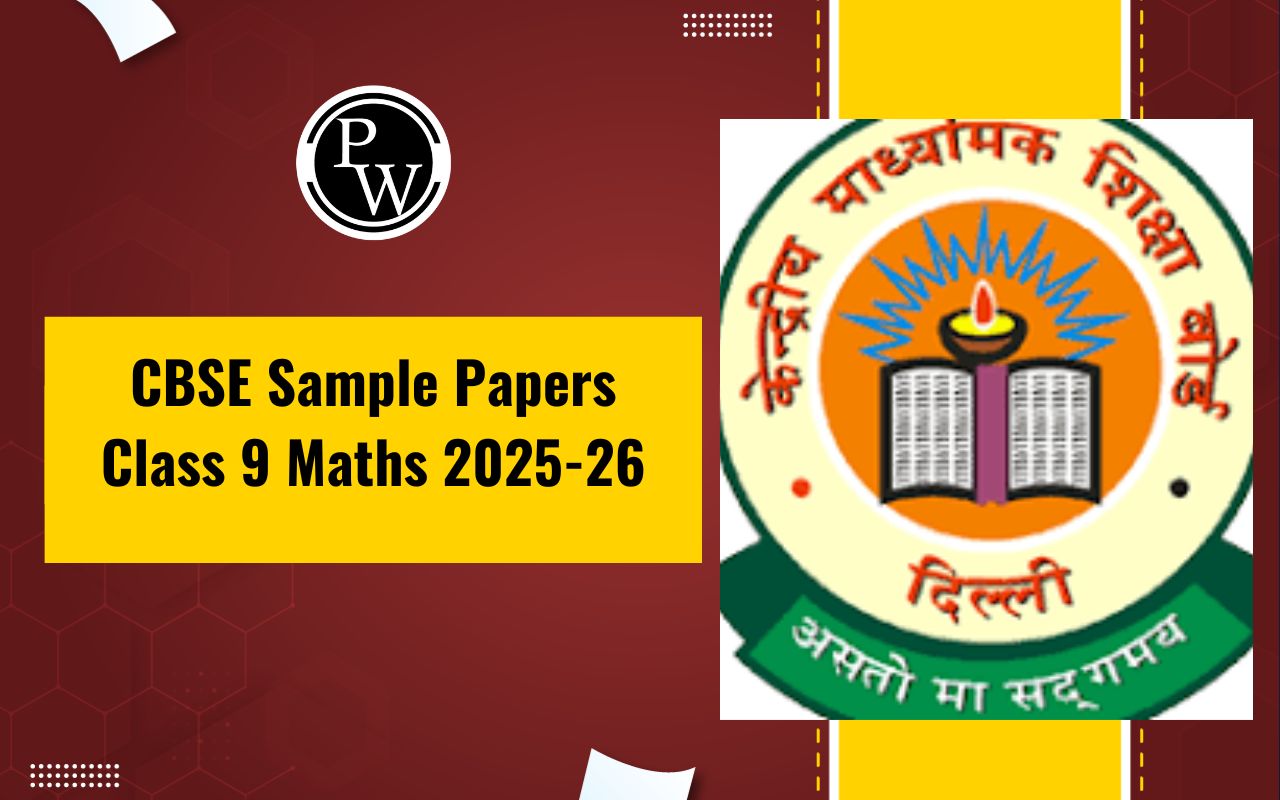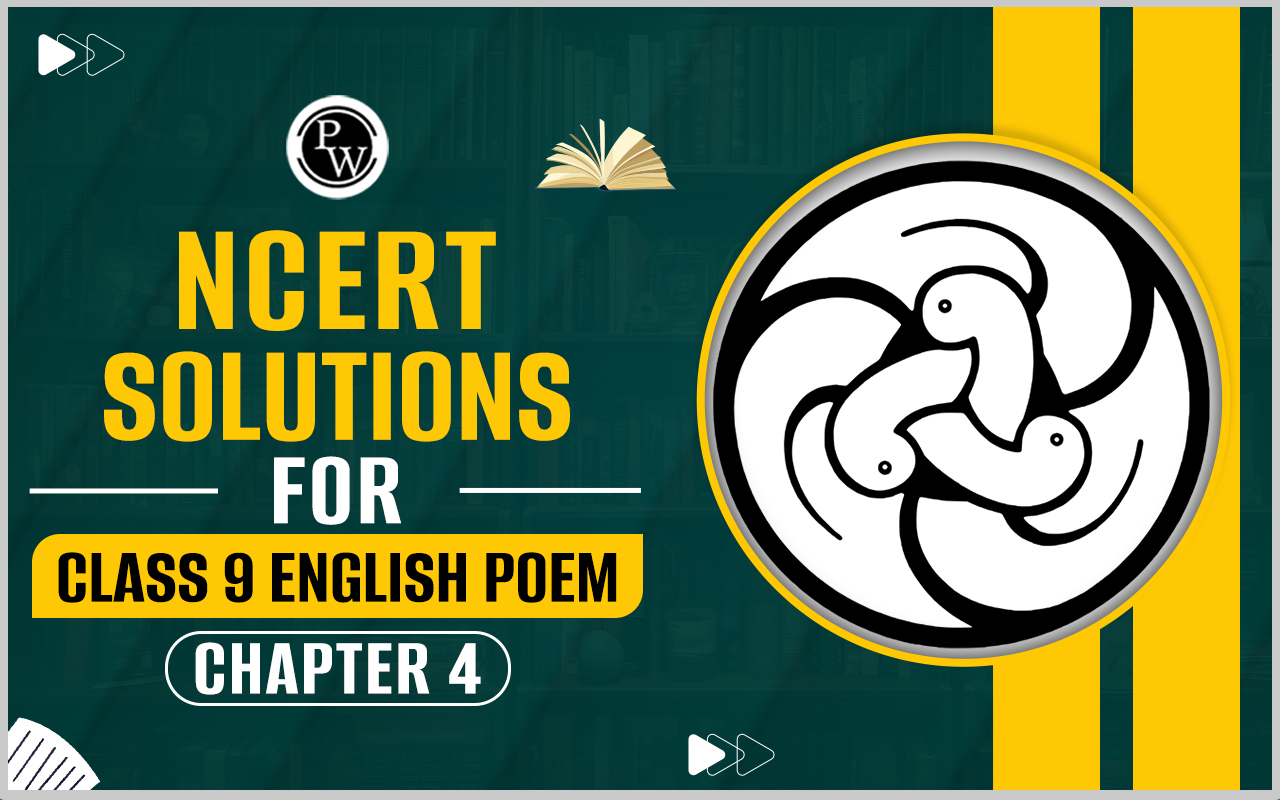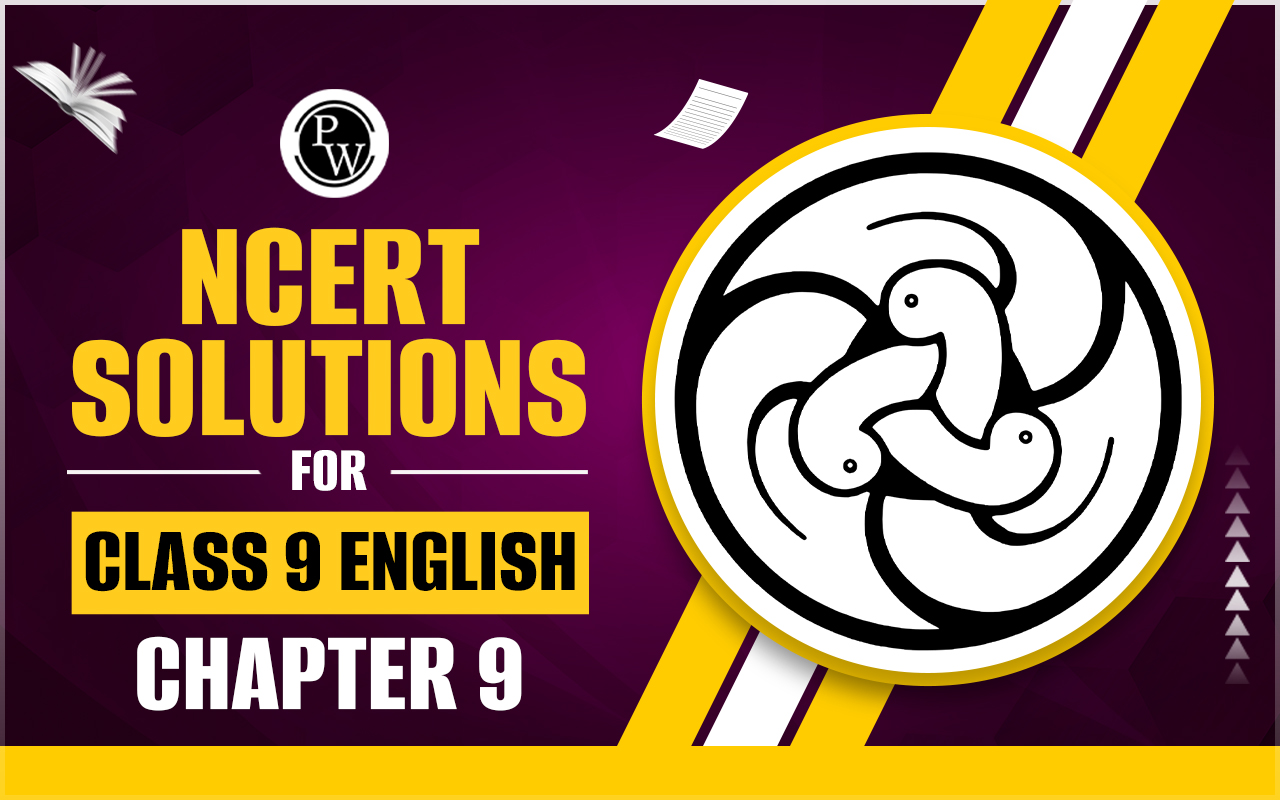
NCERT Solutions for Class 9 English Chapter 9: The most comprehensive and trustworthy NCERT Solutions for Class 9 English Chapter 9 The Bond of Love. We have gone over the solutions to every single question in the Beehive textbook. An effective grasp of textbooks is essential for exam preparation. You can study offline by downloading the PDF version of these NCERT Solutions for Class 9 English Chapter 9.
Students look for reliable sources of standard solutions throughout exams. We are providing you with it right now. Our team of subject-matter specialists has organized the NCERT Solutions for Class 9 that are provided here by the CBSE board's requirements. Therefore, these responses would be very beneficial to students as they progress towards mastery of the material.NCERT Solutions for Class 9 English Chapter 9 PDF
Class 9 students are taught the benefits of mental and emotional connection between humans and animals through the NCERT Solutions for Class 9 English Chapter 9, "The Bond of Love." Here we have mentioned NCERT Solutions for Class 9 English Chapter 9 PDF for the ease of students.NCERT Solutions for Class 9 English Chapter 9 PDF
NCERT Solutions for Class 9 English Chapter 9
Below we have mentioned NCERT Solutions for Class 9 English Chapter 9 for the students to prepare easily for their upcoming class 9 exams -Thinking about the Text
I. Given in the box are some headings. Find the relevant paragraphs in the text to match the headings.
An Orphaned Cub; Bruno’s Food-chart; An Accidental Case of Poisoning; Playful Baba; Pain of Separation; Joy of Reunion; A Request to the Zoo; An Island in the CourtyardAnswer: An Orphaned Cub- 3;
Bruno’s Food-chart- 6; An Accidental Case of Poisoning- 8; Playful Baba- 12; Pain of Separation- 14; Joy of Reunion- 16; A Request to the Zoo- 18; An Island in the Courtyard- 21II. Answer the following questions
Question 1 . “I got him for her by accident.”
(i) Who says this? (ii) Who do ‘him’ and ‘her’ refer to? (iii) What is the incident referred to here?Answer: “I got him for her by accident.”
(i) The narrator says the statement. (ii) ‘Him’ refers to the baby sloth bear and ‘her’ refers to the narrator’s wife. (iii) The incident is about how the narrator got the baby sloth bear to his house.CBSE Class 9 Books for Preparation
Question 2 . “He stood on his head in delight.”
(i) Who does ‘he’ refer to? (ii) Why was he delighted?Answer: “He stood on his head in delight.”
(i) ‘He’ refers to Bruno, the sloth bear. (ii) Bruno was sent to the zoo. He was delighted to see the narrator’s wife after a long time.Question 3 . “We all missed him greatly: but in a sense we were relieved.”
(i) Who does ‘we all’ stand for? (ii) Who did they miss? (iii) Why did they nevertheless feel relieved?Answer: “We all missed him greatly: but in a sense we were relieved.”
(i) ‘We all’ stands for the narrator and his family members – wife and son. (ii) They missed the bear. (iii) They felt relieved because it was becoming difficult to keep the bear at home due to his growing size.III. Answer the following questions in 30 to 40 words each.
Question 1: On two occasions, Bruno ate/drank something that should not be eaten/drunk. What happened to him on these occasions?
Answer: The poison that the narrator had stored to kill the rats and mice in his library was the first item Bruno ate that he shouldn't have. After going inside the library, Bruno consumed some of the poison. He was unable to stand and was paralysed. He was brought to the veterinarian's house.
The second time, he discovered almost a gallon of old motor oil, which the narrator had removed from the Studebaker sump and was preserving to use as a pest control. He drank it all right away, and it had no negative effects on him.Question 2: Was Bruno a loving and playful pet? Why, then, did he have to be sent away?
Answer: Yes, Bruno was a fun and affectionate pet. The narrator's two Alsatian dogs and every child of the bungalow's residents also developed strong bonds with the bear. When he was younger, he was left pretty much free to play and run into the kitchen.
He had grown so much that he had to be sent away because of his size. It was getting harder to keep him at home.Question 3: How was the problem of what to do with Bruno finally solved?
Answer: Because of his size, Bruno could no longer be kept in the house and was taken to a zoo. However, he was worrying and not eating at the zoo. He was growing feeble. After that, the narrator took his wife to the zoo, where she lavished Bruno with food and beverages. She asked the zoo authorities to return Bruno to her after realising he wouldn't be okay there.
After rescuing Bruno, the narrator and his spouse build a unique island just for him.Related Links -
Thinking about Language
I.
Question 1: Find these words in the lesson. They all have ie or ei in them.
f__ld; ingred__nts; h__ght; misch__vous; fr__nds; __ghty-seven; rel__ved; p__ceAnswer: field; ingredients; height; mischievous; friends; eighty-seven; relieved; piece
Question 2: Now, here are some more words. Complete them with ei or ie. Consult a dictionary if necessary.
bel__ve; rec__ve; w__rd; l__sure; s__ze; w__ght; r__gn; for__gn; gr__f; p__rceAnswer: believe; receive; weird; leisure; seize; weight; reign; foreign; grief; pierce
II: Here are some words with silent letters. Learn their spelling. Your teacher will dictate these words to you. Write them down and underline the silent letters.
knock wrestle walk wrong knee half honest daughter hours return hornet calm could sign island buttonAnswer:
knock wrestle walk wrong knee half honest daughter hours return hornet calm could si g n island buttonIII. How to look at an Index
An index is a list of names or topics that are to be found in a book. It is a list arranged in alphabetical order at the end of a book. The following paragraph shows that the doctor is consulting the index of a medical book to find out which injection is appropriate for Bruno. “Out came his medical books, and a feverish reference to index began: What poison did you say, sir?” “Barium carbonate”. “Ah yes—B—Ba— Barium Salts—Ah! Barium carbonate! Symptoms—paralysis— treatment—injections of … Just a minute, sir. I’ll bring my syringe and the medicine.”Question 2: Adverbs
Find the adverbs in the passage below. (You’ve read about adverbs in Unit 1.) We thought that everything was over when suddenly a black sloth bear came out panting in the hot sun. Now I will not shoot a sloth bear wantonly but, unfortunately for the poor beast, one of my companions did not feel that way about it, and promptly shot the bear on the spot.(i) Complete the following sentences, using a suitable adverb ending in –ly.
(a) Rana does her homework ____________. (b) It rains ____________ in Mumbai in June. (c) He does his work ____________. (d) The dog serves his master ____________.Answer :
We thought that everything was over when suddenly a black sloth bear came out panting in the hot sun. Now I will not shoot a sloth bear wantonly but, unfortunately for the poor beast, one of my companions did not feel that way about it, and promptly shot the bear on the spot.(i)
(a) Rana does her homework neatly. (b) It rains heavily in Mumbai in June. (c) He does his work diligently. (d) The dog serves his master obediently.(ii) Choose the most suitable adverbs or adverbial phrases and complete the following sentences.
(a) We should ____________ get down from a moving train. (never, sometimes, often) (b) I was ____________ in need of support after my poor performance. (badly, occasionally, sometimes) (c) Rita met with an accident. The doctor examined her ____________. (suddenly, seriously, immediately)Answer:
(a) We should never get down from a moving train. (never, sometimes, often) (b) I was badly in need of support after my poor performance. (badly, occasionally, sometimes) (c) Rita met with an accident. The doctor examined her immediately. (suddenly, seriously, immediately)Question 3: Take down the following scrambled version of a story that your teacher will dictate to you, with appropriate punctuation marks. Then, read the scrambled story carefully and try to rewrite it rearranging the incidents.
A grasshopper, who was very hungry, saw her and said, “When did you get the corn? I am dying of hunger.” She wanted to dry them. It was a cold winter’s day, and an ant was bringing out some grains of corn from her home. She had gathered the corn in summer. “I was singing all day,” answered the grasshopper. “If you sang all summer,” said the ant, “you can dance all winter.” “What were you doing?” asked the ant again. The grasshopper replied, “I was too busy.” “I collected it in summer,” said the ant. “What were you doing in summer? Why did you not store some corn?”Answer : It was a cold winter’s day, and an ant was bringing out some grains of corn from her home. She had gathered the corn in summer. She wanted to dry them.
A grasshopper, who was very hungry, saw her and said, “I am dying of hunger. When did you get the corn?” “I collected it in summer,” said the ant. “What were you doing in summer? Why did you not store some corn?” The grasshopper replied, “I was too busy.” “What were you doing?” asked the ant again. “I was singing all day,” answered the grasshopper. “If you sang all summer,” said the ant, “you can dance all winter.”NCERT Solutions for Class 9 English Chapter 9 FAQs
What is the name of Chapter 9 Class 9 English?
Who did they miss Class 9?
What was Bruno Class 9?




